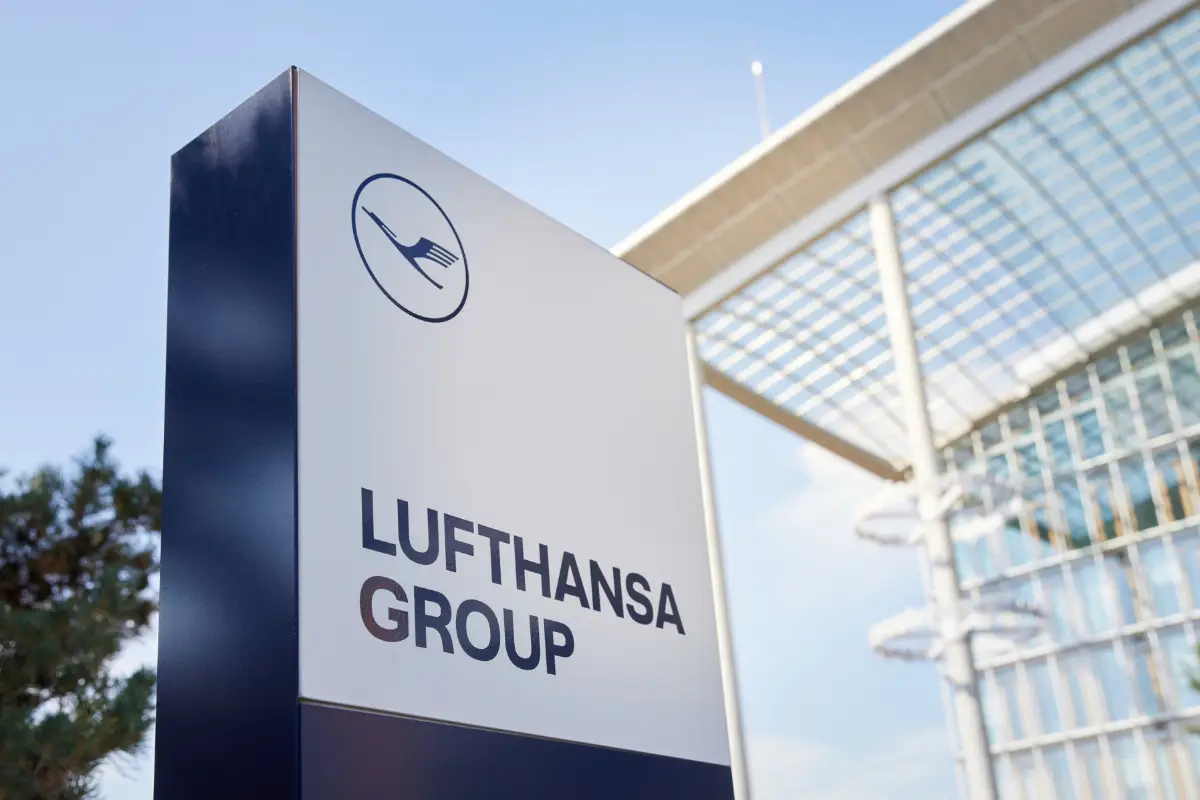
Lufthansa Group reports an operating profit of 1.3 billion euros for the 3Q
Following a strong Summer travel season

Lufthansa Group reports an operating profit of 1.3 billion euros for the third quarter following a strong Summer travel season.
The highlights are:
- Strongest revenue quarter in the company's history, with revenue of 10.7 billion euros
- Unit revenues stabilize compared to the first half of the year thanks to high seat load factor
- Lufthansa Technik at previous year's record level, significant earnings improvement at Lufthansa Cargo
- Demand remains high, bookings for Q4 up compared to last year
- Full year guidance confirmed at 1.4–1.8 billion euros Adjusted EBIT.
Results
The Group increased its revenue by five percent year-on-year to 10.7 billion euros (previous year: 10.3 billion euros) in the third quarter due to the higher number of flights and the revenue growth at Lufthansa Technik. This was the strongest quarter in terms of revenue in the history of the Lufthansa Group. The Group generated an operating profit (Adjusted EBIT) of 1.3 billion euros (previous year: 1.5 billion euros), resulting in an operating margin of 12.5 percent (previous year: 14.3 percent). The year-on-year decline was due to significant cost increases, particularly in fees, MRO expenses and personnel. Net profit fell to 1.1 billion euros (previous year: 1.2 billion euros).
Lufthansa Group Passenger Airlines expand capacity
The Lufthansa Group airlines welcomed more than 40 million guests on board their aircraft in the third quarter, an increase of six percent over the previous year. At 94 percent of available capacity (prior-year period: 88 percent), the seat load factor rose to 87 percent in the third quarter (previous year: 86 percent). In terms of the seat load factor, August was the strongest month in the company's history, with a load factor of 88 percent.
Due to the industry-wide capacity growth, average yields fell by 3.5 percent compared to the previous year, although the development in the various traffic regions was mixed: While average yields in continental traffic in the third quarter remained almost at the previous year's level (-0.4 percent), they fell significantly by 14 percent in the Asia/Pacific region. Due to the improved passenger load factor, the decline in unit revenues (RASK) was less pronounced at minus 2.7 percent. Unit costs increased by 4.5 percent compared to the previous year due to higher fees, as well as higher material and personnel costs.
Overall, the Group's passenger airlines generated an Adjusted EBIT of 1.2 billion euros in the third quarter (previous year: 1.4 billion euros). The decline in the operating profit of the passenger airlines is mainly driven by the 234 million euros decline in the result of Lufthansa Airlines. Delays in the delivery of new aircraft and the associated need to continue operating older aircraft, increased location costs, higher staff costs and expenses for compensation payments following flight irregularities had an above-average impact on the result of Lufthansa Airlines.
Lufthansa Technik's result on par with last year, positive performance at Lufthansa Cargo
In the third quarter, Lufthansa Technik continued to benefit from the high demand for air travel and the associated increase in demand from airlines worldwide for maintenance and repair services. Lufthansa Technik generated an Adjusted EBIT of 167 million euros in the third quarter (previous year: 168 million euros).
The airfreight business continued to recover in the third quarter compared with the previous quarter. Lufthansa Cargo achieved an operating profit of 38 million euros (previous year: 1 million euros) in the traditionally seasonally weak third quarter for air freight. This trend confirms the anticipated normalization in the air freight market. Furthermore, Lufthansa Cargo is optimally positioned to benefit from strong e-commerce business with Asia, which has prompted Lufthansa Cargo to shift capacity from the transatlantic to the Asia/Pacific region.
Outlook
The Lufthansa Group expects demand for air travel to remain strong in the remaining months of the year. The load factors booked for November and December are well above the levels observed at the same time last year. Demand remains particularly high in the premium classes, i.e. Business Class and First Class.
The Lufthansa Group plans to increase its capacity in the fourth quarter further compared to the previous year. For the full year 2024, it expects a capacity of around 91 percent compared to the pre-crisis level.
The Group also expects to report a positive operating result in the fourth quarter. Overall, the Lufthansa Group is therefore confirming its expectation of achieving an Adjusted EBIT of 1.4 to 1.8 billion euros for the full year.
AVIONEWS - World Aeronautical Press Agency